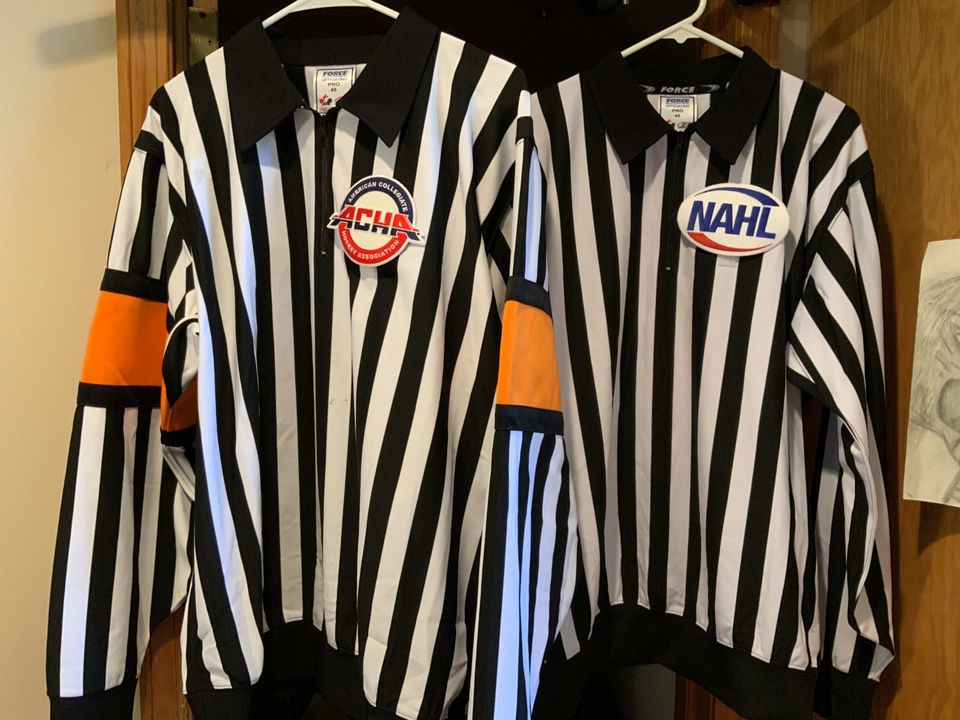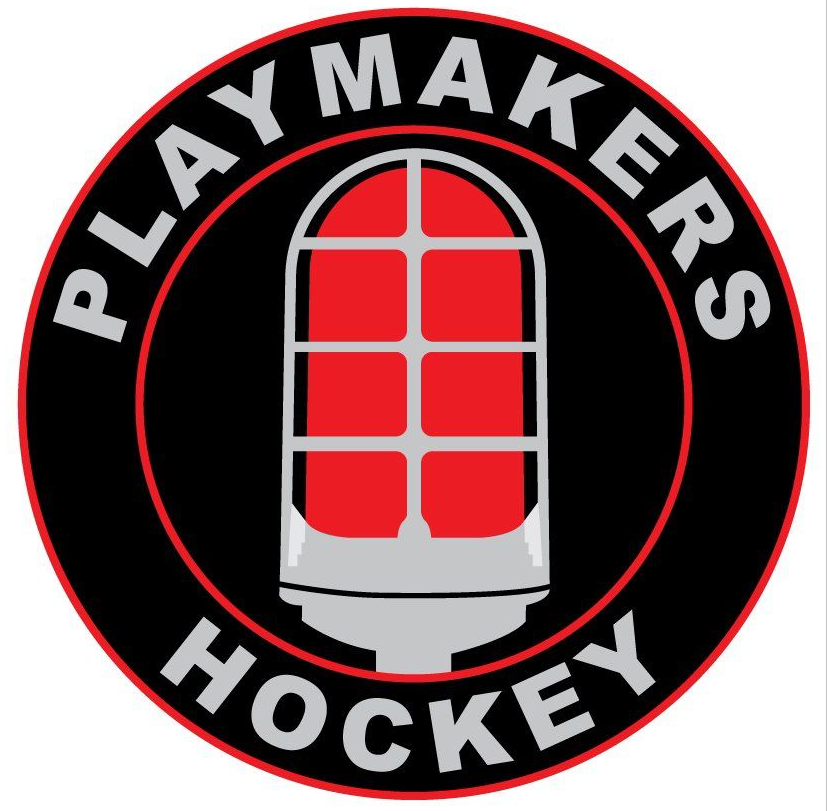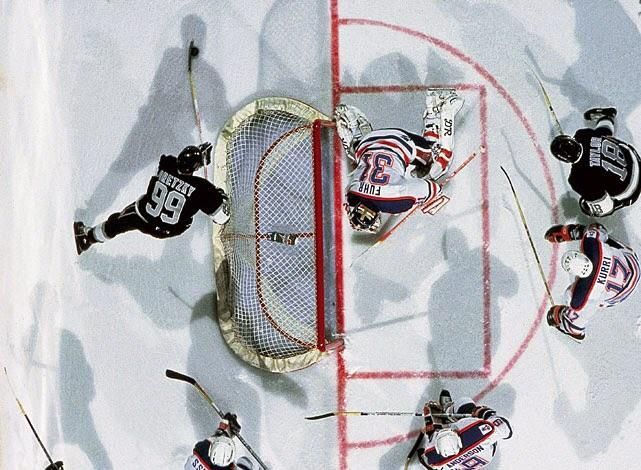Blog Layout
New Perspective: My First Season as an Official
Tony Attanucci • June 13, 2020
A look back at my first year as an on-ice official: The NHL Exposure Combine, First Game, Back in the NAHL, ACHA playoffs, & Takeaways.

My first season as an on-ice official was certainly an experience full of personal growth. With over 3 decades of experience in hockey as a player, coach, recruiter, scout, evaluator, strength & conditioning coach and so on, I had yet to explore one vital area of the game...OFFICIATING! Here’s a few takeaways from some of the highlighted experiences from my first season.
NHL EXPOSURE COMBINE
In my mind, I knew I had the physical on-ice abilities and fitness to perform at that level (even as the oldest participant). I still got it! I also knew that I possessed a huge amount of hockey knowledge and experience to lean on, even though I had zero experience as an official leading up to the event. This would prove to make the initial process an eye-opening one, but also allow for a relatively speedy transition to perform. One thing is for sure...If you think officiating is a joke and an easy job, you are MISTAKEN! Sure, it’s easy to blurt out calls from the bench, the stands, or from the comfort of your own sofa. But when you are in the game, it is a COMPLETELY different perspective! The combine was an intense and enjoyable weekend spent with fellow hockey nuts getting pushed to our physical and mental limits. It’s an experience I’ll never forget, in a good way of course. It left me with one huge takeaway that I’ll elaborate on shortly. Officiating is much more difficult than you think it is, and the men and women; boys and girls that choose to do it, love the game just as much or more than anyone else in hockey.
FIRST GAME
Believe it or not, my very first game as an official was an ACHA college hockey game at my alma mater, WVU. I was a linesman in the 1 referee 2 linesman system, so the transition was a bit easier than being thrown in as the lone referee. In the interest of keeping this article to a blog post length and not the novel I can turn it into, I’ll share my major takeaway. Athletes learn best by doing. The science of skill acquisition and application is an area of study that far too many coaches, parents, and fans are not sufficiently educated in or think about consistently. You can verbalize instructions, study textbooks, and watch video ad nauseum, but true acquisition is achieved through repetition during application. In short, I was prepared and confident, but I most certainly was not comfortable until deep into my 2nd or 3rd NAHL game a week or two later.
Back in the NAHL
Having spent 2 years coaching and another recruiting from that league as recent as 2018, it was refreshing to get back into that electric, emotional environment. It really is a league of opportunity and a phenomenal place for high level players to develop and truly learn what it takes to train and compete. I missed being surrounded by players, coaches, scouts, agents, and officials that were completely invested in hockey as a way of life. It brings out a special kind of energy during games at the higher levels of the sport. I love it. Okay, I’ll admit it: I really gave officials a hard time when I coached in that league. When I look back now, I realize how much I needed additional growth and maturity in my coaching game and perspective. Everyone’s got a tough job when it comes to their individual roles in a hockey game. The ones that succeed are laser focused, manage their emotions, and stay in the moment. The ones who can have fun and enjoy the intensity and pressure. The ones who don’t lose sight of what’s important in both a bigger sense and within their own role. Officiating certainly gives you that perspective and ability to be present. One special part of those first few games back in the NAHL, was the ability to share the ice in the game with players that I had recruited and coached a couple years earlier. I also had friends coaching in the game and recruiting in the stands. It served as a reminder that everyone’s path in the game is different, and what makes the game so special are the relationships: they really are forever.
First Game as the Lone Referee
Again, believe it or not, my very first game as the lone referee in the 1-2 system was an ACHA college game. This one was definitely a baptism by fire. I was overwhelmed early with a physical game that was on the verge of crossing the line into a violent one. I’ll admit I like to let the players play. But this one required action to keep the safety of the players intact. I managed to get out of the first period with a couple minor penalties and a relatively smooth 20 minutes. The 2nd period was really a pop quiz. One team was blood thirsty and frustrated by the fact that they were trailing in the game. To complicate things, their leadership group aka the head coach was pouring gasoline on the fire. I ended up in a position to call my first Major and Game Misconduct penalty deep into the period. An obvious headshot to a vulnerable player. The HC I just mentioned completely disagreed. Emphatically actually. He’d let his emotions cloud his judgement. I got out of that period alive, and when we returned for the 3rd, he apologized after he’d seen the video, but that still didn’t stop him from barking the rest of the game. The 3rd was a relatively smooth one, and the team that deserved the win came out on top. It was a tough experience in the moment, but one that boosted my confidence into the remainder of the season as a referee.
ACHA Playoffs
To be selected to officiate playoffs at any level is an achievement and reflection of the work you’ve put in throughout the season. I’m grateful for that opportunity as a first year official. It’s a handful of games I’ll always remember, and I’ll lean on the experience gained moving into my second season. It ended with a triple overtime game. The winning team’s goalie had over 90 saves in the game! The best part...when the goaltender took his helmet off during the celebration, I realized I had coached him 6 years earlier as a U15 during the Inaugural season of the Pens Elite U15/U16 American team. I was fortunate to get a front row seat for a moment of success he’ll never forget.
Takeaways
- Officials are under appreciated.
- Officiating is harder than it seems.
- Officials love hockey.
- Officiating is a great way to get involved or stay involved in hockey.
- Officiating is a great lesson in communication, ethics, and selfless servitude. All young players should try it.
- The game needs officials & the game needs quality officials more than ever.
- The officials are a lot like the players and coaches. They have routines, systems, fitness requirements, hockey knowledge, and passion for the game.
- Officials are a team.
- Officiating is a good way to make some money while skating in the games.
- Every official I have skated with wants to get it right. In any given game, the coaches and players make WAY MORE MISTAKES than the officiating crew does. Hockey is a game of mistakes. The mistakes are what make the game exciting. Just think: every goal that is scored, one or two or more players on the ice made a mistake. Sometimes the coach makes a mistake resulting in a goal against as well. Remember that the next time you want to scream at the ref for what you think is a mistake, bad call, or missed call. They’re trying to get it right. If you don’t like the quality of officiating you see at your level, do something to help solve the problem or try it yourself.
- Officiating can be just as fun as playing and coaching.
- If you love hockey, try officiating!
~ Tony Attanucci
Share
Tweet
Share
Mail
More Posts



